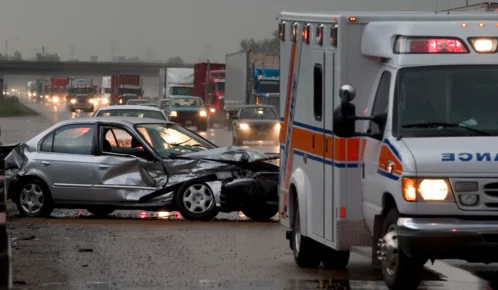Elevator accidents can be scary and cause serious injuries to anyone trapped in the elevator when it malfunctions. Anyone who has suffered an elevator injury can consult a premises liability attorney and seek elevator injury compensation.
Table of Contents
When Can You Recover Elevator Injury Compensation?
Elevators and escalators are an essential part of most multi-story buildings, including office buildings, shopping malls, and apartment buildings. Unfortunately, injuries can occur when elevators and escalators malfunction as a result of poor maintenance or defective parts.
Elevator passengers can be injured when an elevator car drops suddenly or stops above or below the floor, or when the elevator doors close too quickly or fail to retract upon contact. Escalator injuries can happen when an escalator stops or accelerates suddenly or moves irregularly such that passengers can lose their balance and fall. Escalators can also be particularly dangerous if an object becomes trapped in the moving plates.
If you have been injured in an elevator or escalator accident, you may be entitled to compensation for your injuries. Depending on the circumstances of the elevator accident, you may have a cause of action against the property owner or operator under a premises liability theory or against the elevator manufacturer under a product liability theory. A personal injury attorney or a product liability attorney can help answer questions about elevator accident lawsuit settlements. They can also answer additional questions such as, “Can you sue for being stuck in an elevator?”
Elevator Injury Settlement Amounts
The amount of compensation to which an injured elevator or escalator passenger is entitled depends on the type and severity of the injuries, as well as the liability assessed against the negligent party. If successful in pursuing a cause of action, an injured elevator passenger may be entitled to compensatory damages for medical bills, lost wages, and pain and suffering.
The elevator accident lawsuit settlement may account for the financial losses suffered by the victim, as well as compensation for non-economic harm. These compensatory damages may include:
- Medical bills,
- Physical therapy,
- Long-term care,
- Medication and medical supplies,
- Lost wages,
- Loss of future income,
- Loss of consortium,
- Injury to reputation,
- Emotional distress, and
- Pain and suffering.
An elevator accident victim’s claim will be worth more if the accident was due to the premises owner’s negligence or a poorly designed elevator sold by the elevator manufacturer.
Getting stuck in an elevator is the most common type of elevator accident. However, being stuck in an elevator rarely leads to physical injuries. If someone has suffered from an incident in which they were stuck in an elevator, they can sue.
However, without an injury, they are unlikely to recover any damages. However, if they suffer an injury from being stuck in an elevator, they can recover damages from those injuries just like they could if they were injured in an elevator fall. Some people may be injured when an elevator gets stuck if they are trapped for too long without food or water or they have to exit the elevator while it is between floors. Whatever the cause of the injury, victims have a better chance of recovery of elevator injury compensation if they work with a premises liability attorney.
Elevator and escalator accidents involve complex legal and factual issues. The Chicago elevator accident attorneys at Ankin Law are dedicated to helping clients collect the maximum recovery possible following a personal injury accident, such as an elevator or escalator accident.
If you have been injured in an elevator or escalator accident, contact the Chicago personal injury attorneys at Ankin Law at (312) 600-0000 to schedule a free consultation to discuss a possible lawsuit to obtain compensation for your elevator accident injuries.



